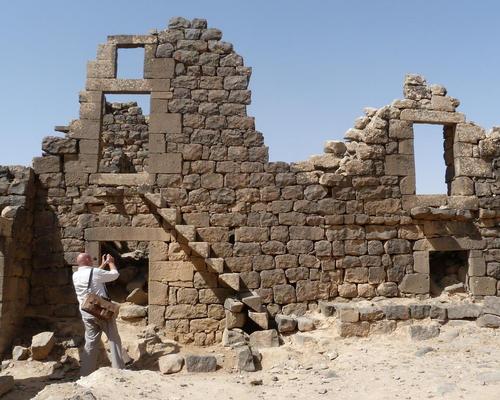14 Aug 2017
World Monuments Fund training Syrian refugees to restore lost heritage
BY Tom Anstey

The World Monuments Fund (WMF) is beginning to lay the groundwork for a new heritage conservation training programme after announcing plans last month to establish a £500,000 (US$648,000, €550,000) scheme for Syrian refugees to rebuild historic heritage sites.
The destruction of ancient sites and theft from shrines and monuments in war zones and areas of conflict has long posed a challenge to those who try to protect Syria’s heritage, with the terrorist organisation ISIS targeting the war-torn country’s cultural heritage.
Creating a workforce of skilled stonemasons, which WMF says is a “precondition for saving Syria’s shattered heritage”, the training scheme will help people living in and around the Zaatari camp on the Jordanian border develop new skills in heritage restoration.
“In addition to the 80,000 refugees in the camp, it is estimated there are an additional 100,000 refugees living in the town and surrounding region, and many are destitute, living off aid,” said Stephen Battle, programme director for Sub-Saharan Africa at WMF.
“At present, Syrians in Jordan may only work in the agricultural sector, but there are moves to open up the construction sector as well. Training in stonemasonry will give a group of young people a skill and the means to earn a living. I hope most will return to Syria when the time comes to take part in conserving their country’s magnificent cultural heritage. But before then, our project provides a potential source of income, and hope for rebuilding shattered lives.”
Funded by the British Council and overseen by the British arm of WMF, the initiative is being implemented in partnership with the Petra National Trust, with the first trip to Mafraq – a city in Jordan close to the Syrian border – taking place earlier this month.
Initially WMF is planning to recruit 34 trainees who, when fully trained, will go on teach others. If a success, the project will be rolled out to similar regions of the world to aid such projects.
In March earlier this year, the United Nations Security Council unanimously passed a resolution designed to deter wilful destruction and looting of cultural heritage sites – making such activities punishable as war crimes.
Close Window